Search Results
Showing results 261 to 280 of 2492
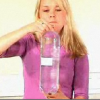
Cartesian Diver
Source Institutions
In this demonstration, learners observe the effects of density and pressure. A "diver" constructed out of a piece of straw and Blu-Tack will bob inside a bottle filled with water.
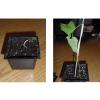
What's Hiding in the Air?: Acid Rain Activity
As a model of acid rain, learners water plants with three different solutions: water only, vinegar only, vinegar-water mixture.
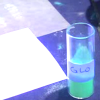
Glowing in the Dark
Source Institutions
In this activity, learners explore phosphorescence and how certain materials can absorb and store energy from a light source.

A Recipe for Air
Learners use M&Ms® (or any other multi-color, equally-sized small candy or pieces) to create a pie graph that expresses the composition of air.
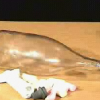
Amazing Marshmallows
Source Institutions
In this demonstration, learners observe the effects of air pressure. They will watch as marshmallows inside a bottle expand as a vacuum pump removes air from the bottle.
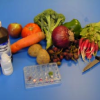
Plant Power
Source Institutions
In this chemistry challenge, learners identify which plants have the enzyme "catalase" that breaks hydrogen peroxide into water and oxygen.

Bronx Cheer Bulb
Source Institutions
In this activity, learners observe what happens when they give a light source like a neon glow lamp a "Bronx Cheer." The lights appear to wiggle back and forth and flicker when learners blow air throu

Perching Parrot
Learners explore the concepts of equilibrium and center of mass by seeing how non-symmetrical objects balance.
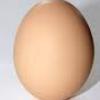
Egg Drop
Source Institutions
In this activity, learners will design a protective package for an egg that will allow the egg to withstand a fall without cracking.
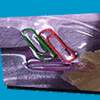
Floating Paper Clip
Source Institutions
In this activity, challenge learners to float a paper clip in a cup of water. Learners discover that a paper clip will sink in a cup of water, except when it is placed on a piece of paper towel.

Morphing Butterfly
Source Institutions
In this activity, learners explore how nanosized structures can create brilliant color.

What is Nanotechnology?
Source Institutions
In this activity related to nanotechnology, learners observe some of the effects that result from creating a thin layer of material several nanometers thick.

Cat's Meow
Source Institutions
In this chemistry activity, learners are asked to form a hypothesis about the behavior of milk as household detergents act upon it.

Composite Materials
Source Institutions
This is an activity (located on page 3 of PDF under Hockey Sticks Activity) about composites, materials made of 2 or more different components.
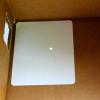
Pinhole Viewer
Source Institutions
In this activity, learners discuss and investigate how cameras, telescopes, and their own eyes use light in similar ways.

Build an Electromagnet
Source Institutions
In this activity, learners will build a simple electromagnet. They will test variables that would make the electromagnet stronger.
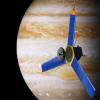
The Pull of the Planets
Source Institutions
In this activity, learners model the gravitational fields of planets on a flexible surface.

Space Stations: Sponge Spool Spine
Source Institutions
In this activity, learners simulate what happens to a human spine in space by making Sponge Spool Spines (alternating sponge pieces and spools threaded on a pipe cleaner).
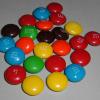
Radioactive Decay of Candium
Source Institutions
In this simulation, learners use M&M™ candy to explore radioactive isotope decay.

What Goes Up...
Source Institutions
In this activity about gravity (page eight of the pdf), learners will very simply explore how gravity affects objects using balls and toys.
